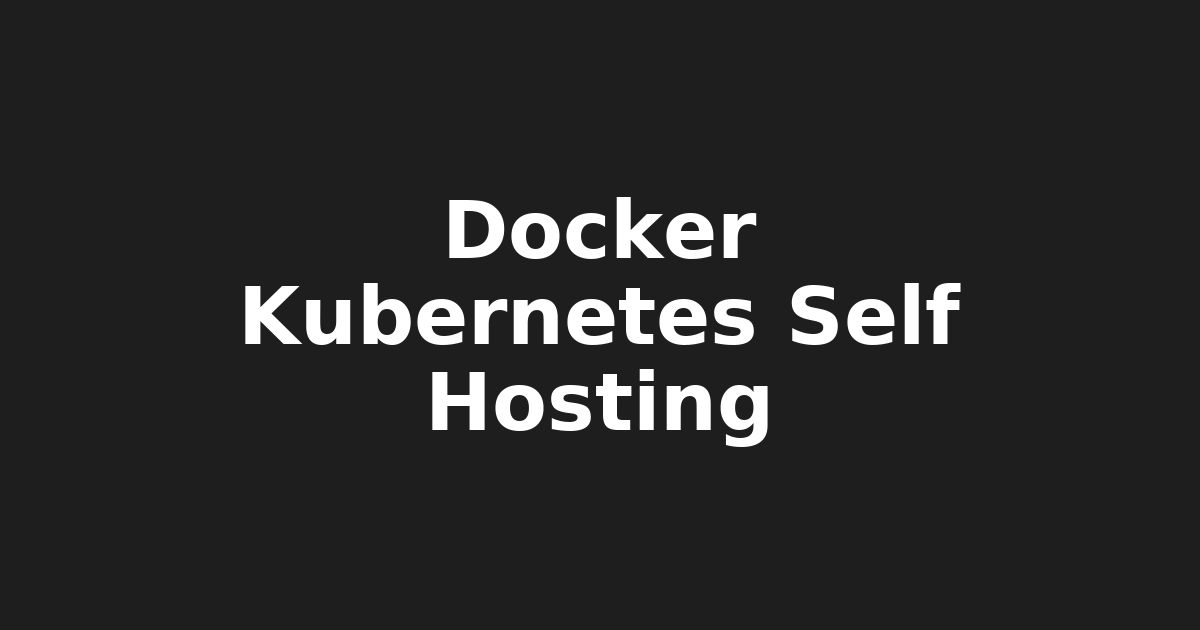Self-Hosting with Docker and Kubernetes: Top Trends

Self-Hosting with Docker and Kubernetes: A Comprehensive Guide
Introduction
In recent years, self-hosting has gained significant popularity among developers, Linux users, system administrators, and IT professionals. As more people seek control over their own infrastructure, self-hosting solutions have become increasingly attractive. Two popular tools that enable self-hosting are Docker and Kubernetes. In this article, we will explore the benefits of using Docker and Kubernetes for self-hosting, trending use cases, relevant tools, top resources, and best practices.
What is Docker?
Docker is a containerization platform that allows users to create, deploy, and manage isolated containers from images. It provides a lightweight and portable way to package applications and their dependencies into a single container that can be run on any system that supports Docker.
What is Kubernetes?
Kubernetes (k8s) is an open-source container orchestration system for automating the deployment, scaling, and management of containerized applications. It provides a flexible and scalable way to manage containers across multiple hosts and environments.
Trending Use Cases
- Home Server Builds: Enthusiasts are building custom home servers using Docker and Kubernetes to host various services like media centers, file servers, and web applications.
- Private Clouds: Developers and organizations are exploring self-hosting solutions for private clouds, enabling greater control over infrastructure and data security.
- CI/CD Pipelines: DevOps teams are leveraging Docker and Kubernetes to automate CI/CD pipelines, ensuring faster and more reliable software releases.
Relevant Tools
- Docker Compose: A tool for defining and running multi-container Docker applications.
- kubectl: A command-line interface for managing Kubernetes clusters and deployments.
- Traefik: A reverse proxy and load balancer that simplifies the setup of multi-host, modern web applications.
Top Resources
- Docker Documentation: Official resources for learning Docker and its ecosystem.
- Kubernetes Documentation: Official resources for learning Kubernetes and its ecosystem.
- LinuxConfig: A popular website offering tutorials, guides, and news on Linux and self-hosting topics.
Best Practices
- Security: Implement security measures such as encryption, firewalls, and access controls to protect your self-hosted infrastructure.
- Scalability: Use Kubernetes to scale your containers horizontally and vertically to meet changing application demands.
- Monitoring: Use monitoring tools such as Prometheus and Grafana to track performance, latency, and resource utilization.
Conclusion
Self-hosting with Docker and Kubernetes offers numerous benefits for developers, Linux users, system administrators, and IT professionals. By leveraging these tools and best practices, you can gain greater control over your infrastructure, improve security, scalability, and monitoring. Stay up-to-date with the latest trends and resources by exploring our recommended top resources.
